“The clash of civilizations will dominate global politics. The fault lines between civilizations will be the battle lines of the future.”
Samuel Phillips Huntington, “The Clash of Civilizations”, 1996
This issue of the blog is dedicated to the discussion of one of the most complex questions related to the prospects for further development of the Russian higher education system that emerged from the Bologna process. It is the question of what values and cultural basis the system should be founded upon.
– Some time ago, we talked about various aspects of the Bologna problem. The moment has come when we must look more closely at, perhaps, the most interesting aspect of the Bologna process and the domestic system of higher education through the prism of today's confrontation between cultures and civilizations. Hence, the first question: how do you feel about the statement that any discussion about education should take the cultural factor into account?
– I will say that I agree with those who believe the core goal of any education system is, in fact, the transmission of the cultural code, which is necessary for the socialization of young people and the development of their cultural identity.
– Today, we often use the phrases “cultural code” and “civilizational code”. What meanings are hidden behind them?
– These concepts have multiple explanations. I propose to proceed from the fact that they are close in meaning. However, the concept of the cultural code assumes that its bearer is a national or cultural community. There is a great number of those. However, few civilizations are vast integral historical culture systems and spiritual material systems with deep historical roots. It is clear that the civilizational code in relation to the cultural code is a phenomenon of a higher order. However, some researchers do not distinguish these concepts and use only one of them. Especially when it comes to the codes of peoples who created not only individual cultures, but also entire civilizations.
It is what the Russian researcher and publicist Sergey Pereslegin does. In my opinion, he conveyed very well the meaning of the cultural code as a kind of algorithm "hardwired" in the consciousness and subconscious of people, which determines their basic reactions to strong risk-related stimuli. To put it simply, according to Pereslegin, the meaning of the cultural code comes down to answering two simple questions: “How and for what should we live together on this territory?” and “How and for what should we die together on this territory?”. Carriers of different cultural codes will have different responses to these questions. Cultural codes always compete with each other. They can transform, be forced out and even destroyed along with their carriers. History knows such examples. And then the cultural codes of more successful or powerful peoples and social groups replace the former cultural codes.

– It means the codes that are constantly at war with each other are initially divided into “ours” and “theirs”?
Yes, and it cannot be otherwise. The "war" of cultural and civilizational codes is both a machine of development perpetually in motion and at the same time the cause of the decline of many civilizations. This is also directly related to technological progress, which we also talked about, since the level of its development largely determines the state of civilization as a whole. Everything is interconnected. “Our” codes are those that are immediately and easily decoded. "Their" codes are always incomprehensible. If it were otherwise, then the codes would not be able to fulfill the function of forming and protecting the cultural identity of a people or a community in constant competition with the codes of other peoples and communities. It can be said that the more incomprehensible a cultural code is for non-bearers, the more reliable and sustainable it is. I think that when the Russian poet and diplomat Fyodor Tyutchev wrote the well-known lines “Russia cannot be understood with the mind and cannot be measured with a common yardstick,” that was exactly what he had in mind. The "mysteriousness of the Russian soul", traditionally noted by foreigners, is another statement of the strength of the Russian cultural code.
– Do these examples mean the Russian cultural code is fundamentally invincible and we have nothing to worry about today when we hear about the “abolition of Russian culture” in the West?
– No, it doesn't. Absolutely "immortal" cultural codes, as noted above, do not exist. If beaten continuously with full strength, the Russian cultural code cannot last, just as the cultural codes of the Sumerian, Mayan, Roman and many other powerful civilizations fell.
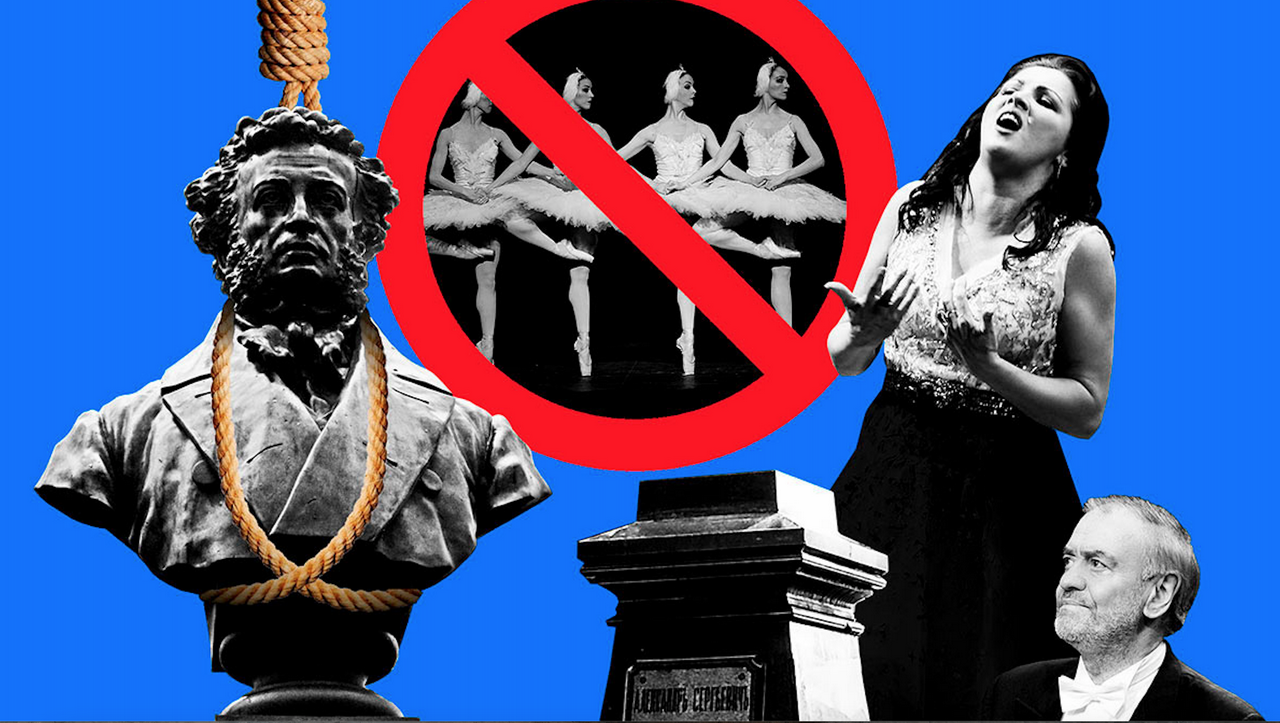
When people talk about the “cancellation” of Russian culture today, in fact, they are talking about the abolition of one of the most complex Euro-Atlantic codes. Such a “cancellation” can take place not only outside our country, but also within it. And it is not obvious which one is more dangerous. However, the Russian code is still holding on. And most importantly, Russians have no desire to respond in kind to the "collective West".
– What do you mean when you talk about the internal “cancellation” of Russian culture and Russian cultural codes?
– "Cancellation of culture" often manifests itself in an attempt to destroy a monument and once again to remake one's history to please momentary realities. Meanwhile, the state of any nation's culture of quality, above all, is in the state of its monumental art. That is why it is necessary to protect monuments. Monuments transmit the cultural code "through time". It is possible to destroy one's own cultural code not only through the destruction of monuments, but also through the creation of new ones in violation of the original aesthetic canon. The cultural code is questioned at the subconscious level. If you search “bad Russian monuments”, you will understand. The appearance of those monuments is either a confirmation of the critical state of the culture itself, or that someone is deliberately trying to destroy it.
There is another internal problem: many, including the intellectual elite, perceive their cultural nature as subordinate, lacking sovereignty. Now this issue is finally being discussed. For example, there is an interesting interview on this topic with the Russian political scientist, Sergei Mikheev.
Getting back to the attempts to destroy the code from the outside, these processes are aptly described in the theory of culture of the German scientist, linguist, semiotician and philosopher - Roland Posner, who, by the way, visited us a few years ago to present his monograph, first published in Russian by the TSU Publishing House. His theory fits very well with what is happening in the world today.
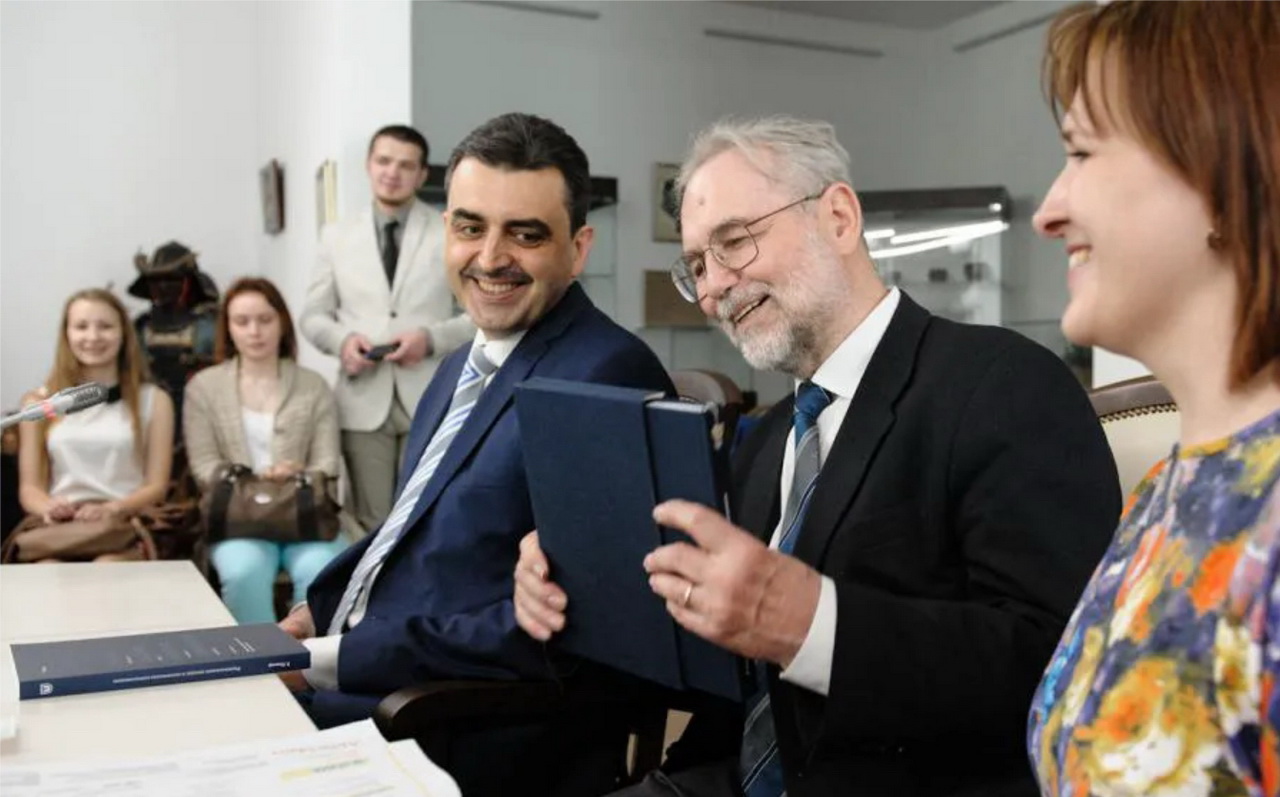
Roland Posner calls "cultural expansion" the invasion of the cultural space of foreign, more prestigious codes. We are talking about a situation where new codes, not fully understood by society, begin to compete with the old, traditional codes that are losing their power. It happens because new codes seem more attractive. As a result, society is "littered" with cultural "rubble", which leads to a sharp decrease in people's ability to navigate their values. Chaos arises within the boundaries of one's own culture. If such expansion takes place not in the periphery, but in the central area (“the core”) of culture, then it ends with the complete victory of new cultural codes and, accordingly, new values. If it is limited only to the periphery and does not touch the core, then it is not a cultural expansion, but a cultural enrichment. Thus, these two processes are very similar, but their results are completely opposite. Enrichment is necessary for the further development of culture, and expansion leads it to degradation.
A vivid example of cultural expansion is the “invasion” of the USSR by Anglo-Saxon codes in the 1980s, the material embodiment of which was “jeans, chewing gum, Coca-Cola” and the like. When we talk about the attractiveness of other cultural codes, we mean their ability to influence, first of all, the emotional sphere of a huge number of people, causing them vivid aesthetic experiences. For example, the enjoyment of foreign pop or rock music, which in a certain sense is also the embodiment of one or another foreign cultural code. Just look at the musical legacy of the Beatles! No wonder the Queen of England knighted Paul McCartney. His songs conquered the entire planet. It can be said without much exaggeration that the Beatles made the world different by influencing the most diverse areas of human lives. The power of this musical Anglo-Saxon code was felt even by Tomsk State University, when a few years ago, during the admission campaign, we placed a sculptural composition of the great Liverpool players in front of its main building. That summer, the University Grove became a place of attraction for a huge number of Tomsk residents and guests.
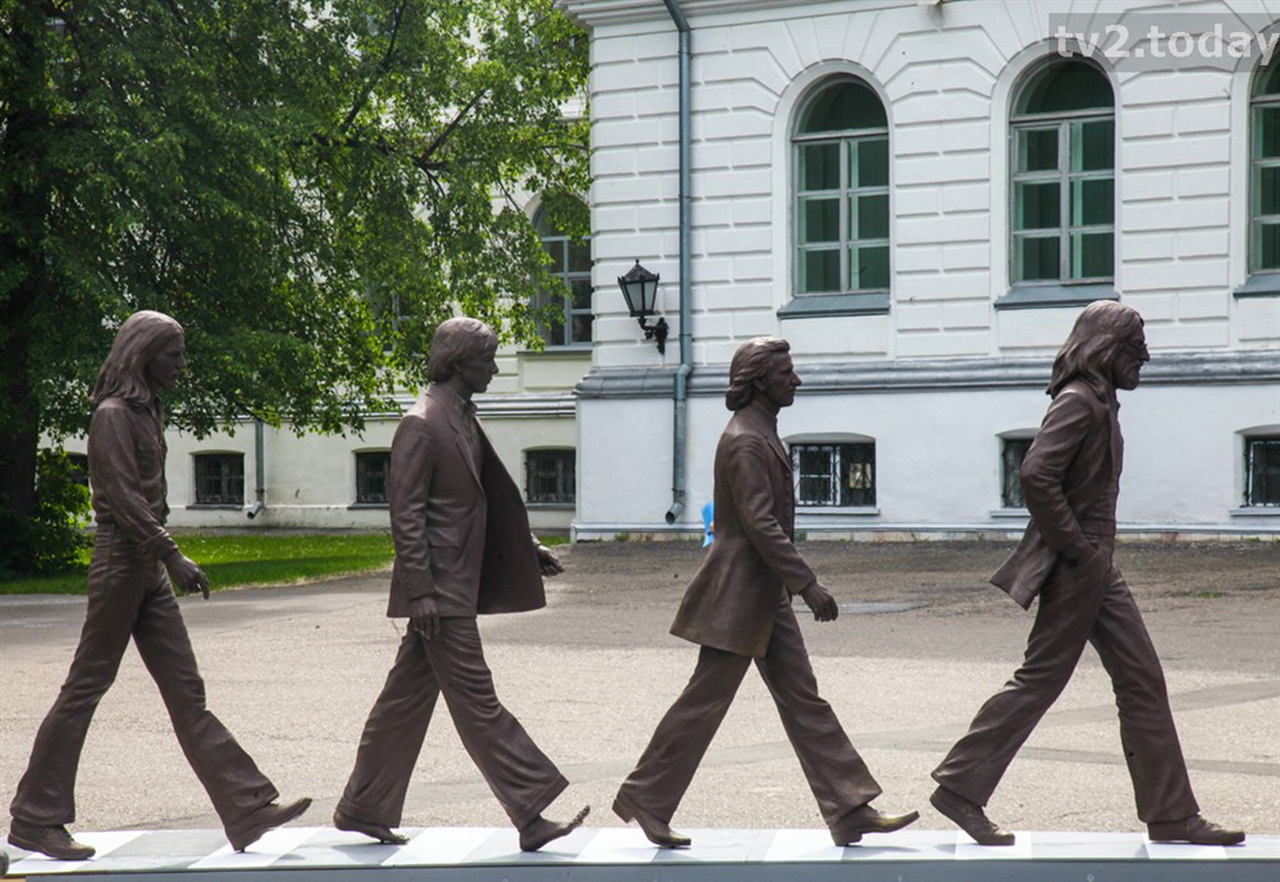
– Is it possible to say that the story of the Beatles is a modern version of the ancient Greek myth about the sweet-voiced sirens, “who seduce people with their singing”?
– Well, the Beatles themselves hardly thought in the category of "cultural code", although they dreamt of being heard on all continents. But if we proceed from the fact that English pop and rock music has not had serious competitors for many decades, penetrating into the very heart of both the youth and the older generation, regardless of their nationality, then it undoubtedly enters the core of the Anglo-Saxon code. But there is also fashion, the magnificent design of industrial goods and other "beauties" of the consumer society. These are all things that are accepted immediately and without any violence against oneself. And only after that, can other elements of a foreign cultural code easily penetrate into public consciousness: the possibility of using “soft” drugs; the child-free lifestyle; the "normality" of same-sex marriages; gender neutrality that knows no age limits, and the like. A feature of our time is that in the context of globalization, mediatization, networkization, and digitalization, such cultural expansions happen not just fast, but, by historical standards, lightning fast. Today, when registering in one of the global social networks banned in Russia, you are offered to identify yourself by choosing one of more than 60 (!) genders. A few years ago, it was impossible to conceive, and now it is already a “new normal”, formed as a result of the expansion of foreign global cultural codes.
– There is a feeling that the cultural codes of the “new normal” are not human at all, and that they carry the anti-values of some extraterrestrial civilization that secretly captured our planet.
– Transformations are also taking place inside the “universal” Anglo-Saxon code. Puritanism, which has always been its core, has gone to the far periphery, and the ideology of gender freedom and other “freedoms” has replaced it. This is an extremely aggressive element of the Anglo-Saxon code. It is quickly conquering the spaces of other cultural codes and becoming global. Most recently, it won a new territory, Cuba, which for more than 500 years was a reliable hand of Catholicism. In September, Cuba held a popular referendum on a new family code allowing same-sex marriage and surrogacy. The majority voted in favor. Gender freedom is not limited to the sphere of personal relationships, but penetrates literally everywhere, including university classrooms. It enters no longer as a subject for discussion, but as the “only correct” lifestyle. Thus, some universities in Canada and the United States, in pursuit of political correctness, have decided to secure in their statutes the right of students to call themselves the way they identify themselves at the moment. Renowned Canadian clinical psychologist Jordan Peterson has attempted to speak out against this gender bacchanalia. As a result, a huge scandal erupted, the echoes of which are still stored in the bowels of the global video hosting.
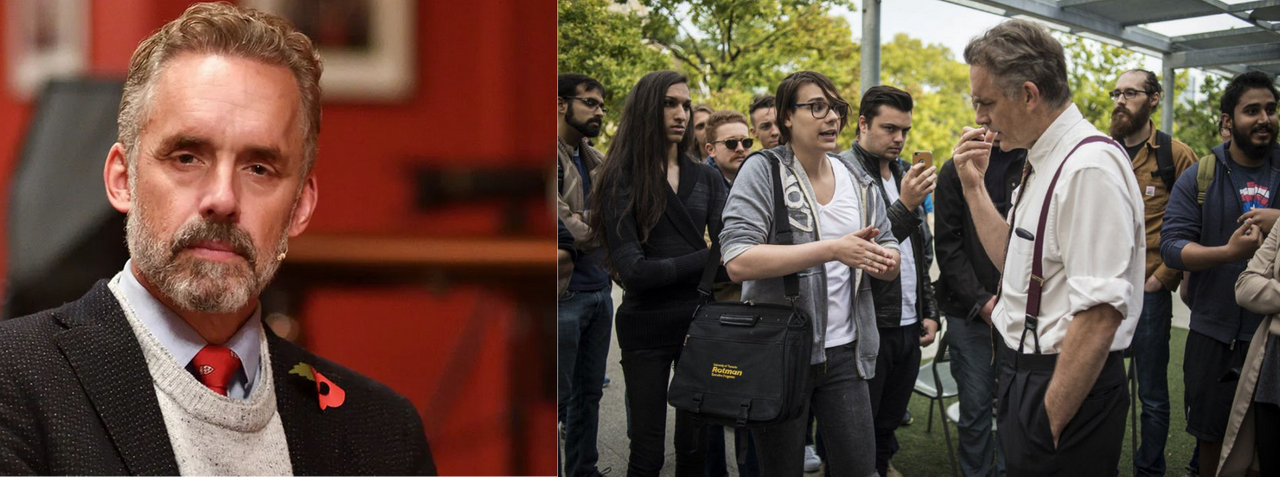
Jordan Peterson has been a lifelong student of human psychology within the framework of evolutionary and clinical psychology. As a scientist and encyclopedist, he perfectly understands what is happening in modern science and the university sphere. He convincingly shows that the traditional classification of identities (male and female) is an integral part of the evolution of men and the whole society. Referring to a person through "alternative" pronouns, even if they want it, is absurd. The segmentation into multiple identities is a dead end, as it has no end. Today you are offered a choice of 60 genders, tomorrow you will be offered to choose from 170 genders, the day after tomorrow — from 1700 genders and so on. If one starts playing such games, then the search for communities of non-traditional identities begins. Evolutionarily and historically, one can understand why it happens. Unfortunately, we, as people of science and education, are also involved in this, albeit indirectly. Because positivist thinking, in fact, has replaced and destroyed the religious foundations of the social order. In this sense, humanity has lost its footing. Nietzsche once said that "God is dead." The attempt to present new pillars has turned into new – militant – ideologies: fascism, ultranationalism, posthumanism, and the like. The fact that today humanity is being divided into different identities is an attempt of people to stand out and tell everyone: “We are different!”. Yes, please, stand out. But do not take a militant position and do not involve children in this. Peterson opposed such a violent approach, showing that such a way of identifying has no serious scientific basis and is criminal in relation to children. There is a video of gender activists turning up posters to Peterson's lecture and interrupting, provoking the professor to emotions. Posters are pasted on his house with inscriptions that a “fascist” who opposes gender freedom lives here. This is how minority students "ban" their professors. It comes to the point that Western intellectuals — opponents of gender freedom — are forced to go to the “intellectual darknet”, since they can no longer openly express their point of view on the Internet. And this is despite the fact that such a situation is completely contrary to the Magna Carta of the Universities, approved in Bologna more than 30 years ago.

We see that Western ultra-liberal democracy has degenerated into the manipulation of human consciousness. There is no freedom. Instead there is an aggressive imposing of one view. As a university, we have always been and are for diversity of points of view. But in a situation when obvious transitions beyond the "red lines" have begun, we are simply obliged to maintain social and cultural bonds and codes. As the outstanding Soviet and Russian literary critic and culturologist Yuri Lotman said, real culture begins with prohibitions. Because of this, we live in a human society, not a jungle. A demonstrative violation of the deepest moral "cannot" destroy cultural codes.
– As you know, in addition to cultural codes, there are also cognitive ones.
–Yes, there are. A cognitive code is a language- and culture-related feature of a person's thinking as a representative of a particular nation or cultural community. The main tool by which the translation of both cognitive and cultural codes takes place is the corresponding type of education, or the “educational canon”. The educational canon, in turn, answers the question “WHAT must be taught to the younger generation living in a given territory in order to reproduce the cultural and cognitive codes as the basis of a certain worldview?”
– But cultural and cognitive codes are transmitted not only through the education system, but also through various media.
–That's the problem. When the influence of the media was relatively limited, the cultural code formed in the process of education was relatively stable. In conditions when the influence of the media becomes huge and uncontrollable, special requirements must be placed on national educational systems. And if instead of this, a “foreign” educational canon is also borrowed — from the point of view of the cultural codes it transmits, then the situation becomes completely tragic. The picture of the world in the minds of young people becomes fragmented, mosaic, corresponding to the culture of postmodernity, or develops into something quite definite, but not corresponding to “their own” traditional national cultural code. By the way, this is one of the main causes of brain drain. People become either cosmopolitans or patriots, but not of their country. Today, a significant part of the Russian youth does not understand and does not accept the foreign policy of our state for this particular reason.
– When you talk about the “educational canon”, an analogy with the Bologna “educational canon” immediately comes to mind. Dozens of countries, including Russia, voluntarily borrowed it, without thinking much about the consequences for their cultural codes.
– Yes, today such an analogy has become obvious to many people. We have already said that four countries initially stood at the origins of the Bologna Process: Great Britain, Germany, France, and Italy. Very soon this core of the Bologna Group became the “spokesman” for pro-American ideals and goals, according to which higher education is, first of all, preparation for a career and a service for money, which devalues the meaning of real education (read Michael Sandel's What Money Can't Buy). English has become the universal operational language of the Bologna educational space, and one can draw an unambiguous conclusion: the main backbone element here is the Anglo-Saxon cultural code.
– Recently, the study of English was welcome everywhere, huge resources were spent on it. Moreover, even the presentations of development programs of Russian universities within the framework of the Federal 5–100 Project were held in English.
– Learning any foreign language, including English, will always be welcome. Isn't it great to be able to read, say, Shakespeare in the original? But learning English and learning only from it are not the same thing. The problem is that the operational language of the Bologna process and the language of Shakespeare are such different things that not every graduate of the “Bologna” university is able to read and understand Shakespeare's text, unless English literature and English are their major.

Language is closely connected with cognitive and cultural codes. Experts note that the Bologna system as a whole operates in simplified English, and this damages not only other cultural codes, but, to a certain extent, Anglo-Saxon code itself. Of course, from a pragmatic point of view, the English language is very convenient: it allows us to send commands without obvious semantic distortions through six structural levels, and Russian can do it only through three levels. The English language corresponds to the "linear" Anglo-Saxon (and especially American) thinking, which, as a rule, tolerates only one semantic context at a time. As soon as one goes beyond their boundaries, one is immediately told that "this is illogical." But on the other hand, the Russian language, which corresponds to the Russian “non-linear” thinking, is capable of holding several contexts at once. It gives its speaker such advantages that English will never have.
As for the working language of state events in our country, of course, it must be Russian. Let's hope that today it is obvious to everyone, including the organizers of such events themselves. We should not joke with language. Incidentally, in the late 1990s, the German professor Roland Posner, whom I have already mentioned above, developed a language concept on the instructions of the European Union, which was to become the basis of European school language education. His approach to linguistic communication between representatives of different cultures was based not on the introduction of a certain common universal language for everyone, but on a real manifestation of interest in the languages of their neighbors. Roland Posner was fluent in several languages and believed that thanks to modern technologies and methods for developing language skills, people are able to communicate with their foreign neighbors in different languages. However, this approach, unfortunately, did not become the basis of European school education and, moreover, of the Bologna system, since it initially contradicted the ideologies of Europeanization and globalization. Meanwhile, the language of any nation is of great cultural value, so it is necessary to preserve all existing languages. And we can save them only if we use them. It was obvious to Professor Posner. We also realize it, but today we live in an era when in some states that consider themselves civilized, the languages of neighboring countries are prohibited under pain of criminal punishment and even death. For a long time, we lived with the belief that the world around us is based on the principles of intelligent self-organization. But now we see how illogical and surrealistic it is, including the "cancellation" of Russian culture and the Russian language.
– Now we often hear about the turn of the Russian system of higher education “to the East”. Does this mean that knowledge of the Chinese language will now be of particular importance?
– Proficiency in Chinese is, of course, a very valuable resource. But as a foreign language, most likely, not as many people will possess it as they did English. The Chinese language is very difficult. Experts believe that it takes at least 10 years to adequately converse and “read aloud ” in Chinese. Therefore, those who reach this level will, of course, be considered very valuable personnel. But first, I would invite all Russian teachers who deal with Chinese students to study the foundations of Chinese culture and the peculiarities of the Chinese mentality. We often do not even think about this, despite the fact that for many years a large number of Chinese youths have been studying in our domestic universities. We also have many Chinese students at Tomsk State University. They come to the first year, and we, communicating with them for 2, 4 or 6 years, expect from them approximately the same reactions as from Russian students. We want them to be active not only at practica and seminars, but also at lectures, when we ask questions to the audience. We look forward to their initiative, eloquent speeches, participation in discussions, and so on. But for some reason, for the most part, they behave, as it seems to us, very “passively”: they rarely ask teachers about anything, they avoid oral presentations. We, of course, explain this by insufficiently good knowledge of the Russian language. But is it the only problem? As it turns out, it is not.
A few years ago, a Russian translation of Jin Li's remarkable book The Cultural Foundations of Learning: East and West appeared. It took the author, having deeply learned the features of the Eastern (Chinese) and Western (Euro-American) education systems, quite a long time to write this book - about a decade and a half. The main purpose of this study was to show how the two largest world cultures, Confucian and Socratic, differently influence the educational attitudes and results of their representatives: schoolchildren and students. The book is amazingly interesting and, by the way, can be found in our TSU Research Library. In addition to extremely valuable conclusions, it contains a lot of interesting examples. But this time I will focus only on the main thing: on the difference between the ideas about learning that are present in the Chinese and Euro-American traditions.
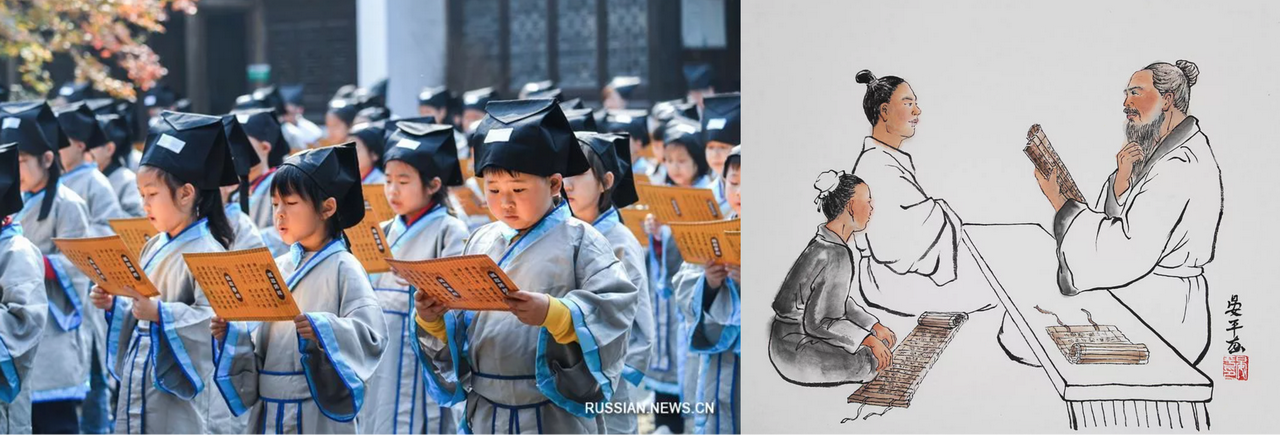
Chinese approach to learning:
– Learning is the most important thing in life and is its purpose.
– Learning makes people better, not just smarter, giving them the opportunity to improve themselves.
– Learning lasts a lifetime. Learning is not a privilege.
–A person must have a passion for learning.
The main thesis: learn about yourself and through your self-improvement learn about the outside world.
European-American approach:
– Knowledge is inspired by human curiosity about the structure of the external world.
– Reason is the highest human ability and value that makes it possible to know the universe.
– The mind carries out the process by which we cognize the world.
– Education is the privilege of those with the best abilities.
The main thesis: first of all, one must learn about the outside world.
Chinese education rests on such Confucian virtues as sincerity, modesty, diligence, perseverance in the face of difficulties, and respect for the teacher. Note that it doesn't say anything about success or achievement. As Jin Li points out, too much academic success of children, which distinguishes them from less successful peers, is a big problem for parents. This imposes a special responsibility to ensure that pride does not form in their gifted children. Parents should convey the idea that natural abilities are not achievements and that gifted students are obliged to help the weaker ones. That is why it is very common in China to do homework together. So that the presence of a group of children is not too expensive for any particular family, all families are included in this process in turn. Most Chinese do not understand the meaning of the expression "motivation to learn", as they have no problem with such motivation. But they immediately understand the meaning of the phrase "heart and mind, thirsty for learning."
In the US and Western Europe, the situation is exactly the opposite: parents are always proud of their children and encourage them precisely for personal achievements, trying their best to maintain their motivation for learning, including through material incentives.
Chinese schoolchildren and students, most often, do not ask teachers questions on new material. Such behavior can lead to the wrong conclusion that they are slow and lacking common sense. In fact, by doing this they show their respect for the teacher, based on the fact that students should not ask questions without doing some intellectual work. Questions should only be asked when there is any ambiguity left after immersing yourself in new material at home. Another interesting point: oratory skill which is traditionally highly valued in the USA and Western Europe, does not have such value in China. Confucianism is suspicious of ornate speech, which may hide unpleasant thoughts and manipulation. For this reason, there are no great speakers in the history of China. The criterion for evaluating a person is not the words, but deeds. At the same time, the Chinese are in awe of those who can express their thoughts in depth and metaphorically in writing. One of the main conclusions of Jin Li's book that we need to remember is thst East Asian children are different, and they remain so even in a foreign cultural environment.
– This is all very interesting and important for Russian professors who teach East Asian students. Even such a brief digression into the cultural foundations of the Chinese education system makes us communicate with its representatives in a completely different way and value them as students. But let's get back to the Bologna process, which until recently was characterized as "an important channel for cultural dialogue between societies." Was it really a "cultural dialogue"?
– Considering all that was said at the beginning of our conversation, as well as in previous conversations about the Bologna process, I would refrain from characterizing it in this way. If we call a spade a spade, then for Russia this process was the "voluntary compulsion" of Europeanization and globalization of the domestic system of higher education and its cultural foundations. The same is true for national science. It was "voluntary" because many sincerely desired it; and "forced" because many did not want it. Today, I hope, most of our academic colleagues realize Russian culture is the highest value the Russian nation can possess. It is no less unique than the culture of any other great nation. And it should determine the cultural foundations of all levels of the national education system, ensuring its self-sufficiency and primacy not dependence and subordination. We are for learning about other cultures and for cultural enrichment, but not for the expansion of cultural codes that are foreign to us.
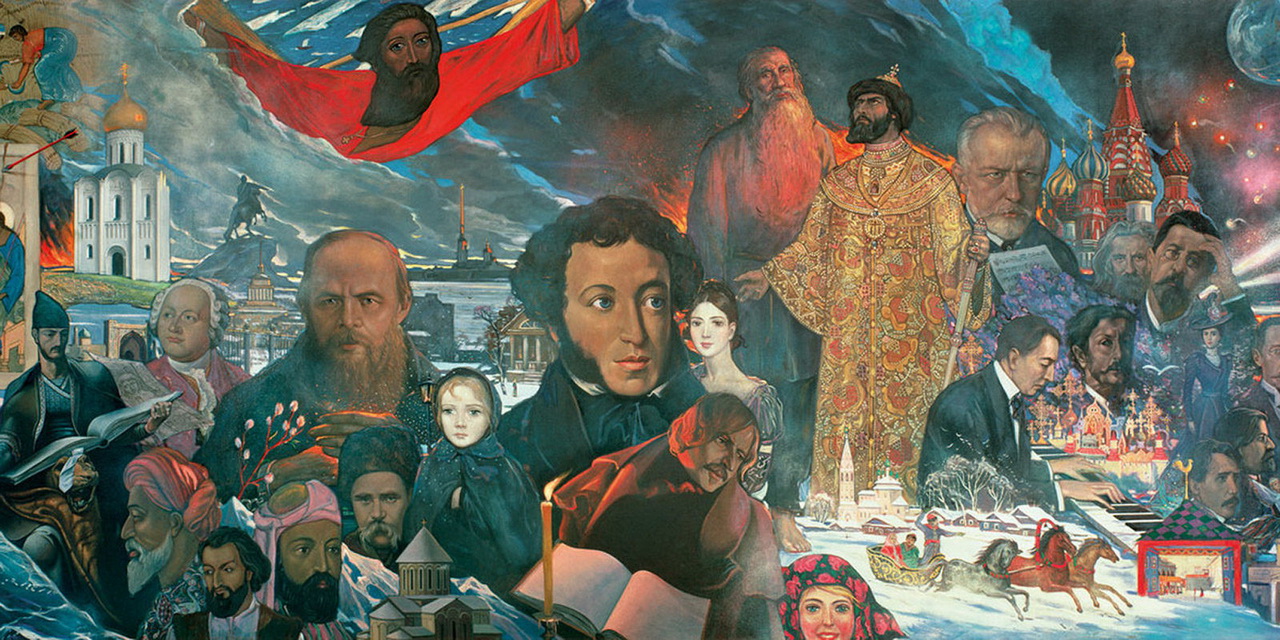
– How can a classical university ensure “cultural enrichment” and prevent “cultural expansion”?
–First of all, a radically different attitude to the social sciences and the humanities and their role in shaping the cultural identity of the younger generation. This, I think, is worth talking about separately.
TSU Rector Eduard Gakazhinskiy
The conversation was transcribed by Irina Kuzheleva-Sagan
Translated by Snezhana Nosova
